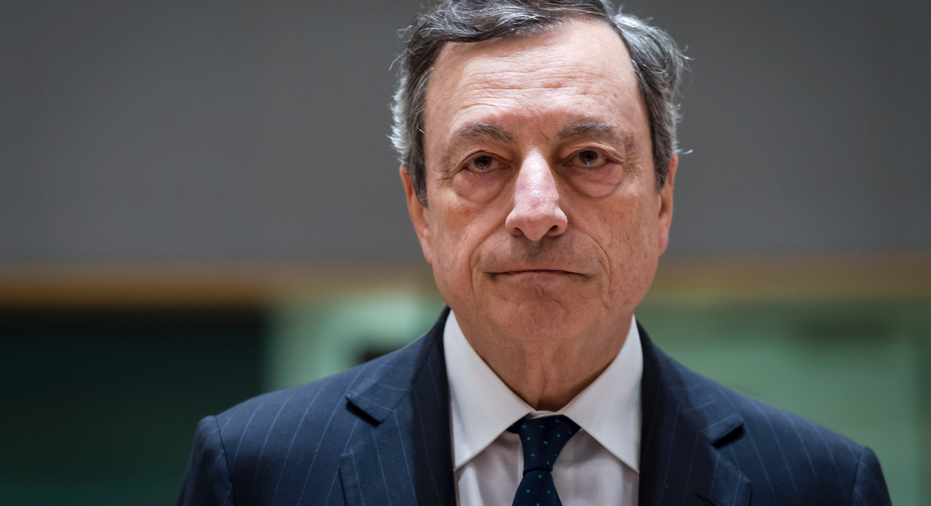New speculation on successor to European bank chief Draghi

FRANKFURT, Germany – A German news media report has stirred new speculation about who will succeed Mario Draghi as head of the European Central Bank, one of the world's most powerful economic policy posts.
Citing unnamed government sources, the Handelsblatt business publication reported Thursday that Chancellor Angela Merkel is willing to drop plans to push for Jens Weidmann, the head of Germany's national central bank, the Bundesbank, to get the ECB job when Draghi's eight-year term expires Oct. 31, 2019.
Instead, the report said Merkel could push for a German to become head of the European Union's executive commission. EU jobs are divided up after complex bargaining in which countries try to maximize their influence.
Merkel said at a news conference in Tblisi, Georgia that "there have been no decisions whatsoever" and that officials were still focused on the campaign for May, 2019 elections to the European Parliament.
"The post of ECB president will be filled much later," she said according to a government transcript.
"So I cannot confirm any wishes that I have but we'll wait for developments and then see how the German positions evolve."
A Bundesbank spokeswoman declined to comment on the Handelsblatt report.
Weidmann has been a leading candidate in speculation about whom the 19 euro governments will choose next year. Names often mentioned include Bank of France head Francois Villeroy de Galhau, Estonia's Ardo Hansson, Finnish central bank head Olli Rehn, and former Finnish central banker Erkki Liikanen.
Not choosing Weidmann could have an impact on the monetary policies that affect the daily economic lives of the 341 million people that use the euro.
He has been a skeptic — and at times an outright opponent — of ECB stimulus programs backed by the majority of the 25-member governing council under Draghi's leadership. He opposed the promise to purchase bonds of countries with excessive borrowing costs — a 2012 offer from Draghi that is credited with helping calm the eurozone's crisis over excessive levels of bank and government debt in countries such as Italy, Greece, Portugal, Ireland and Spain. The offer was never put into practice, but remains in the bank's arsenal.
Weidmann has argued such practices blur the line between monetary and budget policy and involve the central bank using its powers to support government borrowing to the benefit of financially weaker countries, which should reform instead.
Commerzbank chief economist Joerg Kraemer said another candidate would likely be more stimulus-friendly. Kraemer, who found the Handelsblatt report "quite credible," said the leaders would now likely find "a candidate will succeed who does not fundamentally turn away from Draghi's line of holding the monetary union together also by means of monetary policy."
The result of the stimulus including other bond purchases and low interest rates has been lower borrowing costs for businesses, which the ECB argues has helped create 8.4 million new jobs since unemployment peaked in 2013 at over 12 percent. Now it is 8.3 percent.
The stimulus is also credited by many for lifting the prices of financial assets such as stock and government bonds. However, savers have seen returns on conservative holdings evaporate as interest rates fell to record lows.
Weidmann's anti-stimulus stance has significant support among German politicians and economists and in other countries in northern Europe such as the Netherlands and Finland. His views have faced resistance from the countries that benefited from the stimulus, and raised questions about how he would manage as leader if he were in the minority on key questions.



















